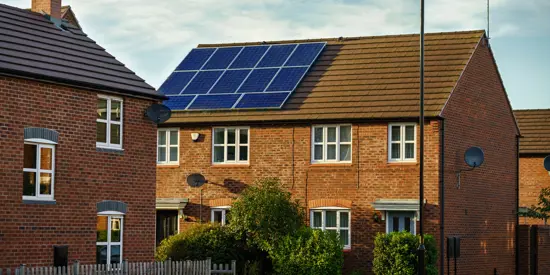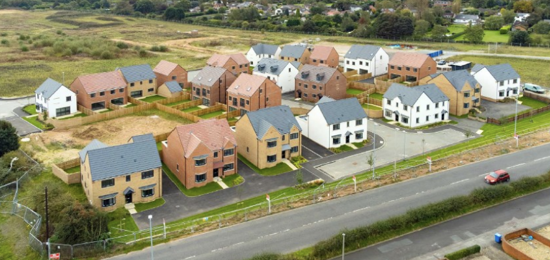Record fuel prices are fastest growing concern for property developers as a third see projects put on ice amid cost inflation
- Spike in fuel prices triggered by the war in Ukraine is the fastest rising worry for property developers, new research by the lender Atelier and Paragon Building Consultancy reveals
- Chronic shortage of skilled workers and long delivery times top the real estate sector’s list of growing pains, as a third of industry leaders report that budget uncertainty has led to projects being put on hold during the past 12 months
- Nine out of 10 say labour costs are still rising, with a quarter seeing wages soar by at least 15% in the past year
- “Emboldened” builders are reluctant to shoulder inflation risk, with 74% no more willing to bid for fixed price contracts than they were pre-Covid
London, 21st March 2022 — Record fuel prices and the prospect of further interest rate rises are the fastest growing concerns for the UK’s real estate sector, research by the development lender Atelier, together with Paragon Building Consultancy, has revealed.
In a survey of more than 100 developers and surveyors from across the industry, 93% said they are increasingly concerned by the spike in fuel prices unleashed by the war in Ukraine. The average price of a litre of diesel hit £1.76 in mid-March, a record high.
Respondents’ long-term concerns were dominated by the shortage of skilled construction workers and the long wait times for building materials. While 78% said that six months ago their greatest concern was Covid-19, anxiety about the pandemic has now all but disappeared – with just 9% listing it among their top three worries.
There was some good news on the cost inflation front too; while half of those polled said that building material costs spiralled by 15% or more over the past year, nearly a fifth (19%) reported that material prices have now stabilised or even started to fall. However, the respite may be short-lived – figures from the Bank of England show global metals prices have jumped 15% since February, and this is likely to push up building material costs sharply in coming months.1
Meanwhile the inflationary storm continues to rage when it comes to labour, with nine out of 10 (89%) saying that construction wage costs are still rising. A quarter (25%) of those polled said wage bills rose by at least 15% in the past 12 months, with one in 40 seeing wages spike by over 20% in a year.
These inflationary pressures come as the construction industry booms. ONS data shows that construction output expanded by 3% in the three months to the end of January, three times faster than services, the next fastest growing sector of the economy.2
Despite this progress, cost uncertainty is acting as a brake on development. A third (32%) of the industry leaders polled by Atelier and Paragon said they had seen multiple projects put on hold over the past 12 months as a direct result of build cost volatility.
The prospect of further inflationary pressure as fuel prices soar, and raw material imports from both Russia and Ukraine cease, is weighing heavily on developers’ cost planning. Nearly a third (31%) of those polled are currently allowing a contingency of 10% or more for a standard residential development worth £3m – double the 5% margin typically budgeted for.
In an effort to insulate themselves from cost escalation, over two thirds (68%) of developers are now more likely to ask tendering contractors to bid for work on a fixed price basis than they were before the pandemic. But the survey found few contractors are willing to oblige – three quarters (74%) are no more likely to bid for a fixed price contract than they were two years ago.
Rebecca Nutt, Director of Portfolio Management at Atelier, commented:
“Residential real estate is buoyant but the waves of inflation keep coming, and unwary developers risk being swept onto the rocks of surging build costs and project delays.
“To be successful in today’s market, you don’t just need a watertight development plan but also the courage, skill and contacts to change it at short notice without losing momentum.
“At Atelier we’re acutely aware of the cost pressures our customers face, and that’s why we provide each one with access to our team of in-house construction and finance professionals – who can quickly assist if unforeseen events force the project to change tack.
“We’ve always seen our role to be about more than just providing finance to borrowers. Atelier is always a partner, not just a lender, to the developers we work with – from the planning phase right through to project completion.”
Robert Kendall, Director at Paragon Building Consultancy, added:
“While material cost inflation eased off at the start of 2022, our research suggests the respite is likely to be brief. The supply chain stepped up well to the surge in developer demand as the pandemic eased, but the spike in fuel and raw material prices triggered by the war in Ukraine means that cost pressures are once again likely to eat into developers’ bottom lines this year.
“Those pressures are being felt most keenly by smaller developers, who have less purchasing power and limited leverage when it comes to persuading newly emboldened contractors to share the cost risk, and work on a fixed price basis. With the Bank of England widely expected to increase interest rates further in 2022, the fixed rate finance and expert support offered by Atelier provide vital certainty for developers in an exciting but testing market.”


